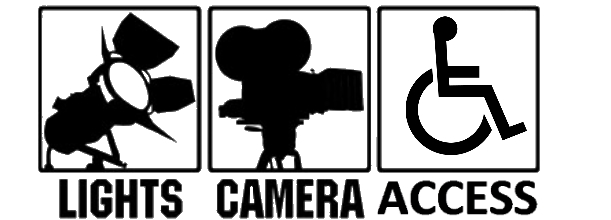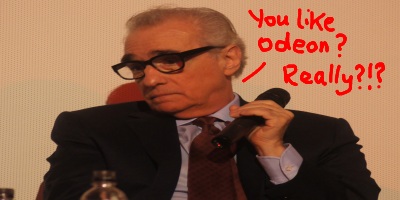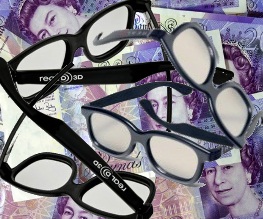Why wheelchair-users are being let down at the silver-screen

Over the winter and spring of 2011 more than 100 Trailblazers visited and rated their local major chain and independent cinemas, completing surveys on their findings. Trailblazers discovered that one in three cinemas of the major chains (including Odeon, Vue and Cineworld) have bad or very bad views of the screen from the wheelchair accessible seating area; more than half of all major chain cinemas have uncomfortable accessible seating areas and one in three major chain cinemas have bad or very bad staff disability awareness.
We spoke to Project Manager Bobby Ancil, who said that a cinema trip should be a physically undemanding and social experience, but wheelchair users continuously received second-class treatment, making their experiences less than pleasant. Wheelchair using cinema goers have been placed in uncomfortable seating with poor views, separated from friends and family, and even called fire hazards, experiencing alienation and often humiliation.
Though this feature focuses on Trailblazers‘ findings relating to wheelchair accessibility, disabled access to films in cinemas also extends to deaf and poorly sighted customers struggling to have an enjoyable cinematic experience.
Interestingly, Trailblazers found that independent cinemas fared phenomenally better than chain venues in the survey. Of the independent cinemas, an impressive 96 per cent have good or very good views of the screen from wheelchair accessible seating, eight out of ten have comfortable wheelchair accessible seating areas and good or very good staff disability awareness. Bobby suggested these discrepancies are down to independent cinemas playing a part in the community and being interested in cinema goers rather than customers. “The difference is that the bigger chains want to get as many people in as possible, independent cinemas want to find out what is important to people and try to improve experiences”, and not just for wheelchair users, but for other film lovers with disabilities, older people and parents with young children.

Trailblazers‘ aim is to work alongside cinemas to make improvements that will benefit wheelchair users “in a real world situation”. “We’re not trying to humiliate, we just want to get involved”, Bobby commented when talking about the difficulty he had trying to get a response from chain cinemas on the issues. “The idea isn’t to slam people, or to say ‘we don’t want to work with you’ – we really do want to work with you!”
After MP Paul Maynard contacted cinemas on behalf of Trailblazers, a Vue spokesperson said: “We continue to be committed to providing the best cinema experience for all our customers. Each of our 68 cinemas across the UK are fitted with wheelchair access ramps, lifts and wheelchair bays. All of our staff regularly partake in training in dealing with the wide variety of customers’ needs and we work to regularly update and modify this training in order to provide the best possible service.”
Cineworld commented “Disabled access is of the utmost importance for Cineworld. The maintenance of disabled facilities and the training of our staff in disability awareness continues to be a priority” and ODEON noted that “Whilst it is more difficult in some of our older, historical sites to provide state of the art disabled access, we make sure to communicate which screenings are wheelchair accessible both on our website and at local Box Offices” and “welcomes the use of CEA cards.”
Trailblazers want cinemas to learn from their findings and actively work alongside them to promote change. Though statements claim to be “taking note” “happy to receive feedback”, the same issues were repeatedly cropping up. Trailblazers campaigner Fiona Anderson (22) recognized that the attitudes of staff “is an area that costs so little to improve” yet the report found staff one in three of the major chain cinemas have bad or very bad staff disability awareness and one in five did not accept the Cinema Exhibitors Association discount card or offer another discount for disabled customers and their carers.

Trailblazers recognise that major changes will not take place overnight, rather that the campaign is about working with the cinema and making small and manageable changes over time, not about pointing the finger or asking for unrealistic structural re-hauls. Feasible changes such as removable seating to allow wheelchair users to sit with more than one person, promoting acceptance and awareness of the CEA card, and updating staff attitudes are aspects that can be improved with relatively small cost. There is nothing unrealistic about the demands of Trailblazers. Though there may be some who believe the changes cannot happen, massive changes have been made to the likes of public transport for wheel-chair access that now we consider standard practise.
Trailblazer’ charter is to be launched in the Autumn, when they will take their petition asking for improvements on best industry practices in cinema to Parliament to address MPs and cinema representatives. Simon Pegg, Sigourney Weaver, Miranda Richardson and Nick Frost have lent their support to the campaign and Bobby is “hoping to get a few more people within the industry to show support, to apply some more pressure”.
Young wheelchair users should not be struggling to enjoy a mainstream experience that could be easily improved. Thinking of movie goers as people rather than figures helps to create a comfortable and enjoyable experience for everyone. No one should be made to feel outcast when simply enjoying a film, and there are changes that can be made.
Are you shocked by these findings? Let us know your own experiences and whether you think changes can be made.





Recent Comments